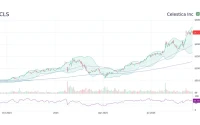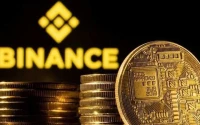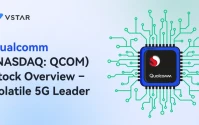When the stock tickers for DraftKings and FanDuel started flashing a deep, bloody red a few weeks ago, Wall Street panicked. Shares of DraftKings plunged 12% on quadruple the normal volume. Chatter on trading floors turned to a single name: Kalshi. The cause of the chaos? A U.S.-regulated prediction market had dared to roll out a “build your combo” feature for Monday Night Football, stepping directly onto the turf of the sports betting giants’ most lucrative product: the same-game parlay.
Analysts rushed to calm the markets, with many arguing the Betting Stock Drops Over Kalshi Parlays Overblown and calling the sell-off a mere “headline risk.” They pointed to structural disadvantages, regulatory hurdles, and the niche appeal of exchange models. They saw a minor skirmish, a temporary market overreaction.
I see something else entirely. I see the first tremor.
When I first saw the headlines framing this as a simple battle for sports bettors, I honestly just sat back in my chair and smiled. Because what we’re witnessing isn’t just a new feature on a betting app. It’s a paradigm shift hiding in plain sight. This isn’t about Kalshi versus DraftKings. This is about the fundamental rewiring of how we interact with risk, information, and value. The stock market dip wasn’t a mistake; it was a moment of involuntary, terrified recognition from an old world realizing its foundations are no longer stable.
The Trojan Horse Has Breached the Gates
To understand what’s really happening, you have to look past the Monday Night Football box scores and listen to the language coming out of Kalshi’s camp. John Wang, their new head of crypto, calls prediction markets a “Trojan Horse.” It’s the perfect metaphor. On the outside, it looks like a simple, accessible bet on an NFL game or an election outcome. But inside, it carries the DNA of a revolution.
Traditional sportsbooks like DraftKings and FanDuel are walled gardens. They offer a curated set of products—spreads, moneylines, and especially parlays—with odds carefully managed to produce margins nearly double those of traditional bets. It’s a closed system, designed for consumption.
Kalshi is building something different. It’s an open protocol. Wang talks about creating an “ecosystem of new financial primitives.” A financial primitive—in simpler terms, it's a fundamental building block, like a Lego brick, that developers can use to build entirely new financial tools we haven't even dreamed of yet. They’re not just building an app; they’re building an App Store for financial outcomes.
Think about the difference. One is a casino, the other is a stock exchange for reality. The former wants you to place a bet. The latter wants to empower a global network of developers and traders to build, innovate, and find an edge. Kalshi’s plan to push its event data onto the blockchain in real-time for anyone to use is the kind of radical openness that built the internet itself. It’s a signal that they aren’t just trying to take a slice of the sports betting pie; they’re trying to bake an entirely new one.

What happens when any developer can build an AI agent that arbitrages information faster than a human? What new forms of insurance or hedging become possible when you can create a market on crop yields in Iowa, shipping lane congestion in the Pacific, or the box office results of the next blockbuster?
An Asset Class for Everything
The analysts who dismiss Kalshi’s threat because its parlay test only processed a quarter-million dollars are missing the point so spectacularly it’s almost poetic. They are measuring the size of the first crack in the dam and concluding the structure is sound. They’re fixated on the present, while Kalshi is methodically building the infrastructure for the future.
This isn't a story that started last month. Kalshi has been playing the long game for years, prioritizing regulatory compliance in the U.S. while crypto-native competitors operated in the gray. Their landmark legal victory against the Commodity Futures Trading Commission (CFTC), which allowed them to list political contracts, wasn't just a win; it was a legitimization. It elevated event contracts to the same level as stocks and derivatives. As Wang put it, this is “genuinely like the new world’s newest asset class.”
And the speed of this is just staggering—it means the gap between the old financial world and this new one, where every quantifiable event can become a tradable market, is closing faster than we can even comprehend. We’re moving from a world of siloed, opaque risk held by institutions to one of transparent, democratized, and liquid risk accessible to everyone. Of course, with this power comes immense responsibility. Creating markets on sensitive social or political events requires a level of ethical foresight and careful design that we, as a society, are only just beginning to grapple with. How do we ensure these tools are used for price discovery and hedging, not manipulation?
But the potential is breathtaking. Kalshi’s market share exploded from 3% to 66% in a single year, not because of a slick marketing campaign, but because there is a ravenous, unmet demand for more direct, transparent ways to engage with the world’s outcomes. The crypto community, which Wang calls the “definition of power users,” sees this immediately. They understand that a platform for creating markets is infinitely more powerful than a platform that just offers them.
This Isn't a Stock Story; It's a Platform Story
The Wall Street analysts are asking the wrong question. They’re asking, "Can Kalshi beat FanDuel at building a better parlay?" The real question is, "Can FanDuel, a company built on a closed-system, consumer-betting model, compete with an open, decentralized ecosystem of financial innovation?"
History tells us the answer is almost always no. AOL didn't become the internet. The taxi industry didn't invent Uber. The future doesn't emerge from the center of the old empire; it starts at the fringes, with a new architecture and a new philosophy.
The panic that gripped the market wasn't overblown. It was premature. It was a brief, accidental glimpse into a future where the moats that protect today's giants—brand loyalty, high-margin products, and regulatory capture—are rendered irrelevant by a fundamentally superior model. This isn’t about who offers slightly better odds on the Kansas City Chiefs. It’s about who is building the foundational rails for a new economy of everything. And right now, Kalshi isn't just in the race; they're laying down the track.









